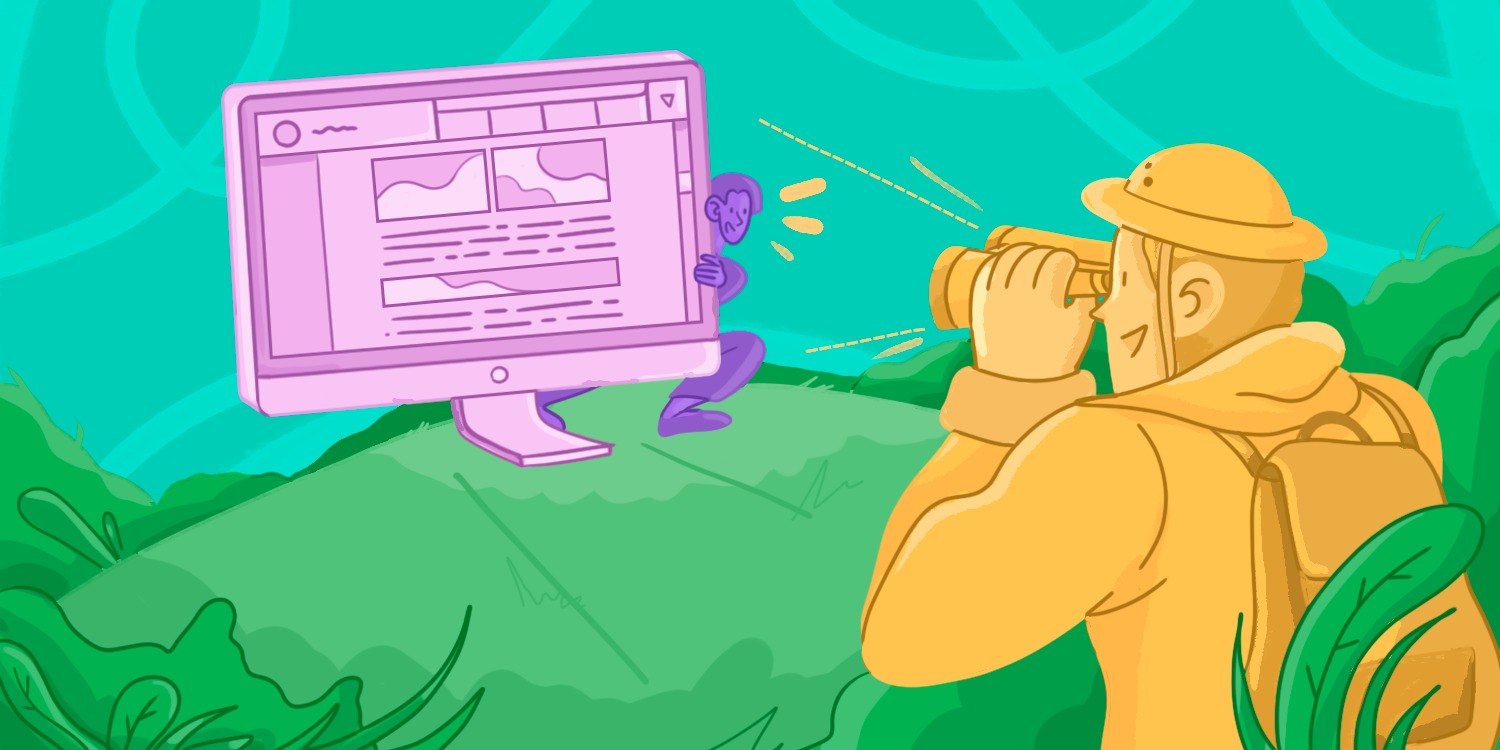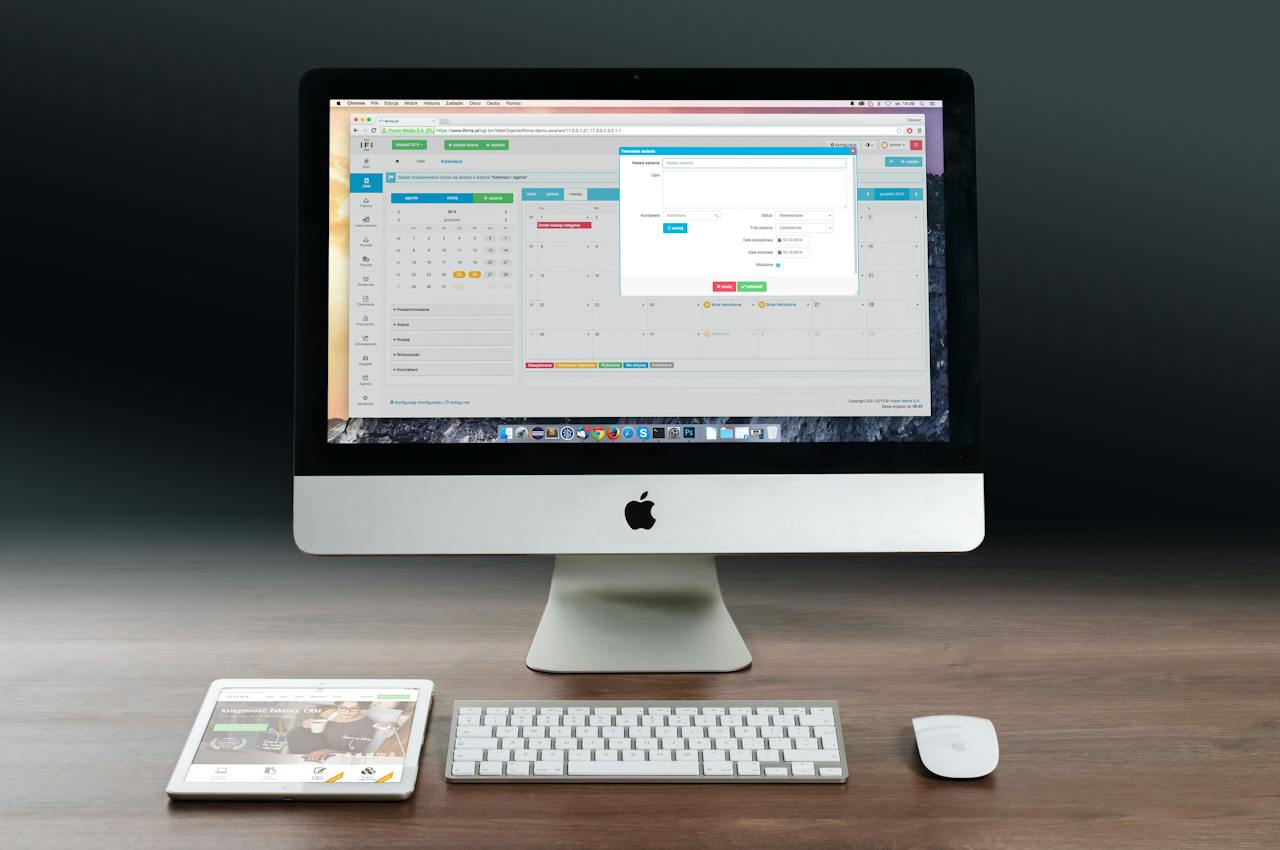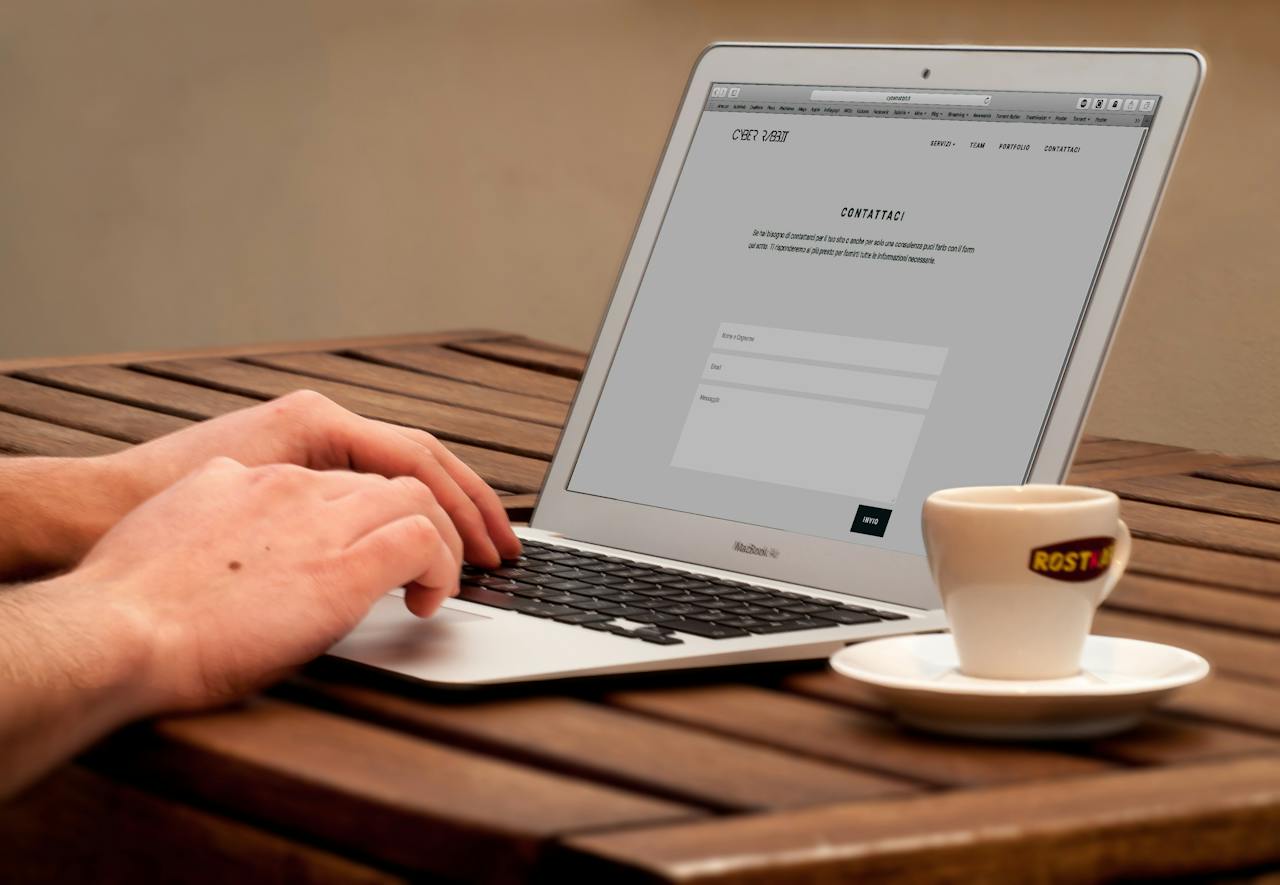
Whether your objective is to work together, make sales, or establish links, you need to discover the publisher of a website and get in touch with them. This way, you may accomplish two tasks at once.
And that can be difficult at times. Examining the appropriate areas of a website is necessary to identify the publisher. The majority of trustworthy websites prominently display the name of the publishing company at the bottom and the content author toward the conclusion of each page.
In the case of websites, the publisher is typically the person who wrote the article or page you are currently seeing or the company that owns the website. This information should be visible in the website footer or beneath the article or page.
If the publisher of a website isn't immediately prominent, there are a few sites you may look into. Additionally, you may utilize specific website tools to look for additional information on the website publisher and owner.
In this article, we will take a deep dive and talk about how to find publisher of website? By the end of this article, you'll not only have a comprehensive understanding of how to uncover a website's publisher but also gain valuable insights into the significance of responsible and ethical online inquiries.
A publisher plays a crucial role in the world of content creation and distribution. The publisher manages the creation and distribution of written, visual, or multimedia works. They act as a go-between for writers or content creators and the public.
Some of their jobs are to spot market trends, judge the quality of manuscripts or contest entries, and make intelligent choices about what to post. Authors, writers, artists, and marketing teams all work together with publishers to make sure that a piece of content is perfect.
They oversee the whole process, from buying the materials to making sure the final result is of high quality and fits the interests of the target audience. Publishers also have to deal with the complicated world of copyright, working out licensing and contract agreements with writers and other important people.
Publishers are significant when it comes to promoting and distributing content, as well as making content. They come up with and carry out marketing plans to get as many people as possible to see a work, using a variety of methods to reach the right people.
As technology changes the businessworld, authors try out new digital tools and ways to distribute their books to stay relevant in a world that is constantly changing. Here are 8 different ways to find the publisher of a website!
Check The Footer
To locate the publisher, navigate to the bottom of the website's home page. Most websites include a copyright notice and the publisher's name or organization's information in a footer that appears at the bottom of the home page.
Check the footer of the main page of the website for the copyright mark ©. If it's a firm, "Inc." or "LLC" may come after the publisher's name.
Occasionally, the publisher's name will coincide with or be identical to the website's name. For instance, the New York Times is the publisher if you're quoting an online piece from their website.
If the content is self-published, appears in a periodical (such as journals, newspapers, and magazines), or is housed on a third-party hosting platform (such as YouTube or WordPress), you are exempt from listing the publisher when constructing an MLA works cited page.
Check Out The About, Team, And Contact Us Pages
Take a look at a few of a website's most important pages first. The most apparent places to check are the About and Contact Us pages. The majority of websites have an "about" page with information about the publisher, owner, and other facts.
Additionally, you might want to check to see if they have any comparable pages, such as "our story," which is typical of eCommerce websites. Larger websites have a particular page about their staff that includes information on the publishers, editors, and writers who are in charge of the website.
One of the most important pages for locating and contacting a website's publisher is the contact page. You can contact them using the contact form, email address, or other information included on most contact pages.
If you're seeking information on the author of a particular article or post, you may also get in touch with them.
- Whether these critical pages aren't immediately accessible via the website's main navigation, check the footer or try directly going to the /about or /contact sections to see whether they're there.
- Verify the domain name's Whois information. One may utilize a number of websites to find out who owns a website based on its domain name. These websites include DomainTools, GoDaddy, and WHO.Is.
- Utilize the domain name to track down its registration details, which include the name of the business or person who is the owner. The Internet Corporation for Assigned Names and Numbers, or ICANN, is the world organization that maintains data on domain name information and ownership, and it is the most reliable source of WHOIS information.
- To utilize the Whois tool, just copy and paste the website's domain name or URL into the designated field in the registration data lookup tool, then click the "Lookup" button.
- To prevent any issues, don't forget to delete the "HTTPS://" or "HTTP://" section of the domain name after pasting it in the designated space and any "/" that comes after the domain name suffix (.com,.org, or.net).
- After that, the Whois tool will produce details about the domain name, such as the IP address, web hosting company, and the company that is leasing the domain name.
There is a drawback to this method, though. Information about domain names may occasionally be withheld or edited for privacy reasons. Whois frequently does not include the details of a business that registers its domain name through a web hosting firm like WordPress.
Use SEO Tools
In spite of the fact that search engine optimization (SEO) tools are primarily intended to examine and improve the search engine visibility of a website, and they are also capable of providing indirect insights into the ownership of a website and information about its publisher.
The secret to success? Checking the backlinks. In these kinds of analyses, websites that link back to the target site are highlighted. These linked websites may offer information about the publisher of the website that they are linking to.
Check Out The Legal Pages Of A Website
Publishers Provide formal information about the business and its activities on specific legal pages. One such noticeable page on a publisher's website that contains information about their formal company registration is the Terms and Conditions.
Other significant pages where publishers are required by law to declare their policies and provide links for people to contact them are the privacy and cookie pages. On the publisher's website, keep an eye out for these significant legal pages;
- Conditions of Service
- Policy on privacy
- Shipping and refund policies for e-commerce websites
Look At The Author Bio Section
When declaring the author details of a particular page or weblog, publishers of the majority of WordPress websites and blogs adhere to a typical structure.
The author's information is typically included in a section at the conclusion of a post or page on WordPress blogs. You may come across social media handles for those writers or publishers, which will allow you to get in touch with them.
Use LinkedIn
Another excellent resource for learning the identity of a website's publisher is LinkedIn. You must list the company you work for or volunteer for, along with your position there, while creating a LinkedIn profile.
If you only search for the name of the website on LinkedIn, a corporate profile will probably come up first, but you may also see employee profiles beneath these results. This will assist you in locating individuals to get in touch with and provide you with details about their positions within the organization.
Check Other Social Media Platforms
Other social networking sites other than LinkedIn may be used to find a website's publisher. Visit more social media platforms, including Facebook, Instagram, Pinterest, and YouTube.
If a website has built connected social media profiles, you might attempt to contact them through these platforms by utilizing the in-app message or by commenting under one of their posts.
Internet Archive Wayback Machine
Websites are periodically captured in snapshot form by the Wayback Machine (archive.org). It could provide historical details about the website, such as the publisher or prior owner. This is particularly helpful in cases when URLs have been removed, or you're looking for a website that is no longer operational.
Why Would You Need To Know Who The Publisher Of A Website Is?
Understanding who the publisher of a website is can be helpful for a number of reasons, including the following;
Credibility And Trustworthiness
It is possible to gain insights into the knowledge, reputation, and legitimacy of a website by gaining an understanding of the publisher or owner of the website. Users are able to evaluate the dependability and trustworthiness of the information featured on the website with the assistance of this feature.
Accountability And Transparency
Users can hold publishers accountable for the material they generate if they are aware of the publisher. The establishment of openness and the guarantee that the publication will take responsibility for the authenticity and quality of the information that is delivered are both facilitated by this.
Contact And Communication
Knowing the publisher's contact details can make it easier for users to communicate directly with the publisher in the event that they have questions, feedback, or requests regarding the website or the material it contains. If you are looking for extra information, asking for authorization, or reporting problems, this may be a beneficial opportunity.
Legal And Copyright Matters
Identifying the publisher can be extremely important in situations when there is a violation of copyright or where there are legal difficulties. It makes it possible for people or groups to take the proper measures, such as contacting the publisher to resolve issues or reporting breaches.
Partnership Or Collaboration Opportunities
Content providers, corporations, or other websites might be interested in forming partnerships or collaborations with the publisher. Establishing a direct connection with the publisher and investigating prospective options is made possible when the name of the publisher is known.
Research And Citation Purposes
It is always necessary to offer appropriate attribution if one incorporates material from a website into a reference or citation. In academic, journalistic, or research contexts, knowing the publisher's name enables correct citation and recognition of the work.
Understanding The Website’s Purpose And Agenda
Certain websites may have specific objectives, connections, or prejudices that impact the material that they publish. Through the identification of the publisher, users are able to get insights about the publisher's purpose, goals, or aims, which in turn assists them in comprehending the context and any biases related to the content of the website.
Note that not all websites explicitly declare their publisher or owner, and in certain instances, the publisher may want to remain anonymous.
This is an essential point to keep in mind. It is feasible for a user to contribute to the overall evaluation of a website's credibility, accountability, and dependability by being aware of the publisher whenever it is achievable. Because of this, you will be able to judge whether or not it is a reliable source of information.
What Are Some Common Mistakes People Make When Evaluating A Website's Publisher?
Typical errors made by users when assessing a website's publisher include the following;
Not Checking The Footer
It might be challenging to determine the publisher if you ignore the website footer, which is generally where the publisher or sponsor information is kept.
Ignoring Social Media And Whois Database
It might be a mistake not to use the official "Whois" database or social media sites to locate the publisher's details. A lot of websites are active on social media, and a quick approach to identifying a website's publisher is to search the Whois database.
Focusing Solely On The Author
Not only should the author be acknowledged, but the website's publisher or sponsor should also be identified. The publisher's identity can give clues on the purpose and potential biases of the website.
Not Checking The Publisher's Credibility
Misinformation may result from assuming the publisher is reliable without first confirming their standing or authority. Evaluating the legitimacy of the website's publisher or sponsor is crucial.
Refrain From Discarding The Website's Visual Appeal
One may erroneously believe that a well-designed website is infallible and trustworthy at all times. The website's aesthetics sometimes correspond with the caliber of the material.
Frequently Asked Questions
What Online Tools Can Be Leveraged To Find A Publisher?
Utilize search engines, SEO techniques, and specialized publisher discovery tools to identify potential publishers.
How Can One Negotiate And Secure A Publishing Agreement Effectively?
Understand contract terms, seek legal advice if needed, and establish clear communication channels with the publisher.
What Should Content Creators Do To Adapt To Changes In The Publishing Industry?
Stay informed about industry trends, consider self-publishing options, and embrace digital platforms and technologies.
Final Thoughts
It is essential to know how to find publisher of website; finding the right publisher for a website involves meticulous research, networking, and adaptation to industry changes. The process requires exploring niche-specific options, assessing credibility through reviews, and understanding submission guidelines.
Building relationships within the publishing community and leveraging online tools are vital steps. Effective negotiation and adherence to guidelines play pivotal roles in securing publishing agreements.
As the publishing landscape evolves, content creators should stay informed, consider self-publishing alternatives, and embrace digital advancements. Ultimately, persistence, flexibility, and strategic choices contribute to establishing a successful partnership with a publisher, enhancing the website's visibility and impact.




